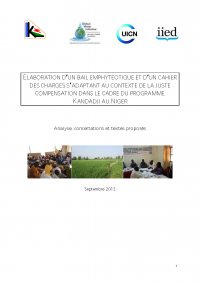Focal point
Location
Mission
Our mission is to build a fairer, more sustainable world, using evidence, action and influence in partnership with others.
Who we are
IIED is one of the world’s most influential international development and environment policy research organisations. Founded in 1971 by economist Barbara Ward, who forged the concept and cause of sustainable development, we work with partners on five continents. We build bridges between policy and practice, rich and poor communities, the government and private sector, and across diverse interest groups. We contribute to many international policy processes and frameworks, including the Intergovernmental Panel on Climate Change, the Millennium Ecosystem Assessment and the UN conventions on climate change and biological diversity.
What we do
IIED carries out research, advice and advocacy work. We carry out action research — generating robust evidence and know-how that is informed by a practical perspective acquired through hands-on research with grassroots partners — and we publish in journals and maintain high research standards. We advise government, business and development agencies, and we argue for changes in public policy. We focus on bottom-up solutions, stay open to flexible, adaptable solutions and are marked by a tradition of challenging conventional wisdom through original thinking.
Resources
Displaying 241 - 245 of 367Élaboration d'un bail emphytéotique et d'un cahier des charges pour la juste compensation dans le cadre du barrage Kandadji au Niger
Le barrage de Kandadji, actuellement en construction au Niger, déplacera 38 000 personnes. Le Haut Commissariat à l’Aménagement de la Vallée du Niger (HCAVN) s’est engagé, conformément aux dispositions juridiques en la matière, à compenser les terres traditionnelles perdues par des terres irriguées, dans le cadre du Programme Kandadji.
‘Land grabbing’: is conservation part of the problem or the solution?
Large-scale land acquisitions are increasing in pace and scale, in particular across parts of Africa, Asia and Latin America. Weak governance and poor land use planning mean that commercial ‘land grabs’ often damage biodiversity as well as dispossessing people from customary rights and livelihoods. Land can also be ‘grabbed’ for ‘green’ purposes, triggering conflicts that undermine potential synergies. Expanded state protected areas, land for carbon offset markets and REDD, and for private conservation projects all potentially conflict with community rights.
‘Land grabbing’: is conservation part of the problem or the solution?
Large-scale land acquisitions are increasing in pace and scale, in particular across parts of Africa, Asia and Latin America. Weak governance and poor land use planning mean that commercial ‘land grabs’ often damage biodiversity as well as dispossessing people from customary rights and livelihoods. Land can also be ‘grabbed’ for ‘green’ purposes, triggering conflicts that undermine potential synergies. Expanded state protected areas, land for carbon offset markets and REDD, and for private conservation projects all potentially conflict with community rights.
‘Land grabbing’: is conservation part of the problem or the solution?
Large-scale land acquisitions are increasing in pace and scale, in particular across parts of Africa, Asia and Latin America. Weak governance and poor land use planning mean that commercial ‘land grabs’ often damage biodiversity as well as dispossessing people from customary rights and livelihoods. Land can also be ‘grabbed’ for ‘green’ purposes, triggering conflicts that undermine potential synergies. Expanded state protected areas, land for carbon offset markets and REDD, and for private conservation projects all potentially conflict with community rights.
‘Land grabbing’: is conservation part of the problem or the solution?
Large-scale land acquisitions are increasing in pace and scale, in particular across parts of Africa, Asia and Latin America. Weak governance and poor land use planning mean that commercial ‘land grabs’ often damage biodiversity as well as dispossessing people from customary rights and livelihoods. Land can also be ‘grabbed’ for ‘green’ purposes, triggering conflicts that undermine potential synergies. Expanded state protected areas, land for carbon offset markets and REDD, and for private conservation projects all potentially conflict with community rights.





